
|
|
|
Here is the T1, The T1 started of as the designed for an all purpose rebreather but then as the project started to take too long it was dived as an O2 rebreather with over the shoulder CL's. It was something that I built in 2-3 years after having taken a Dräger Dolphin course. After the course I thought, this whole rebreather thingie is nothing but just a bunch of plumbing, and I could not have been more wrong. After this doing research on therebreathersite.nl and rebreatherworld.com i built my rebreather. The longest part to accomplish was the counter lungs. The hardest part of the project was probably to keep it simple. After everything I read I always wanted to add something more to it. And the rebreather did not enter the water until after I said this has gone on long enough and I have to get some water time so I'll just dive it as is in pure O2 form. SCRUBBER: The T1 uses as a scrubber a standard water filter that takes 0.6 Kg of CO2 absorbent. WOB is not perfect but for the dives I did with it i did not have any problems. I have used it for 45 minutes but that i think is the very maximum you can use it. The water filter form factor is standard so i can replace it with a 2 or 3 kg version as well if needed. This part is not too clear in the images, but it is the blue thing with the transparent housing attached to it. I guesstimate that the rebreather would have acceptable work of breathing (for me, down to 30m) if it were not for the scrubber. CL's: The CL's are neoprene that contain about 2.5L of volume each. The neoprene is coated with camouflage fabric on one side and is naked on the other. The plastic attachment parts are kept in place by compression using the plastic nut. Then a stainless steel T piece is fitted on. A piece of hose is used to bring up the diameter of the T piece ends on some places. The inhale counter lung has a Sitech valve attached to it where the O2 is injected. This would have been the diluent injection port and O2 would be injected from a kiss type valve assembled from parts from McMaster-Carr. The CL's are clipped to the back of the plate with clips, and to the waist where normally the Y crotch strap would attach. Hoses: The hoses of the T1 are actually bellows to protect some sort of piston from dirt. These are standard industrial parts. They are very flexible but the grooves in the corrugations could be a little too deep if one were to have a flood with it. But the T1 has never had a flood :) The blueish hoses (that are normally used for dirty water in bathrooms) in the picture while diving were replaced later by the black bellow type hoses. DSV: The DSV is a PVC ball valve that has been drilled with a 1.5cm screw. And an extension epoxied to it where a mouthpiece is fitted. The check valves were cut off a medical O2 mask, and are rather tiny. These were later replaced with check valves from an 3M dirt mask. The PVC valve had to be machined on a lathe for this. Reg and Tank: The regulator is a poseidon X-stream Deco (the white pure O2 version). The second stage is hung around the neck as a bailout regulator. The tank should normally be attached to the backplate but in this case it was inside a rucksack attached to the waist strap of the harness. I also have a prototyped 2 oxygen measuring systems. One in the form of a PIC micro controller that is also able to drive a solenoid and one using DPM's. But these will probably never leave the workbench and enter the water. I also have a CMF orifice for the rebreather made by Dave Sutton that I now use with other rebreathers. Please feel free to contact me if you have any further questions. |
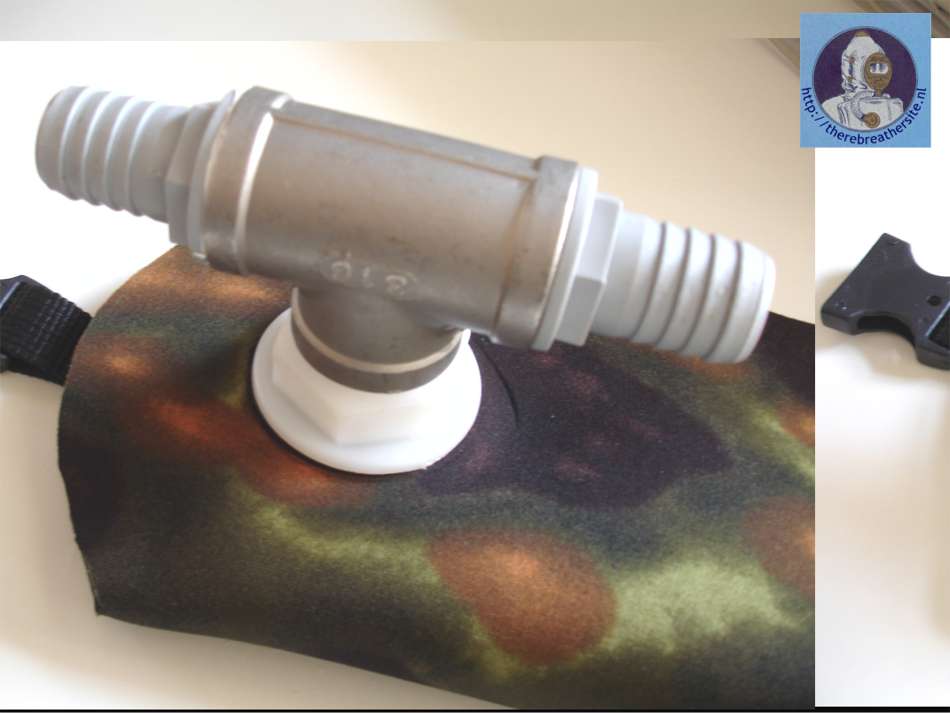 |
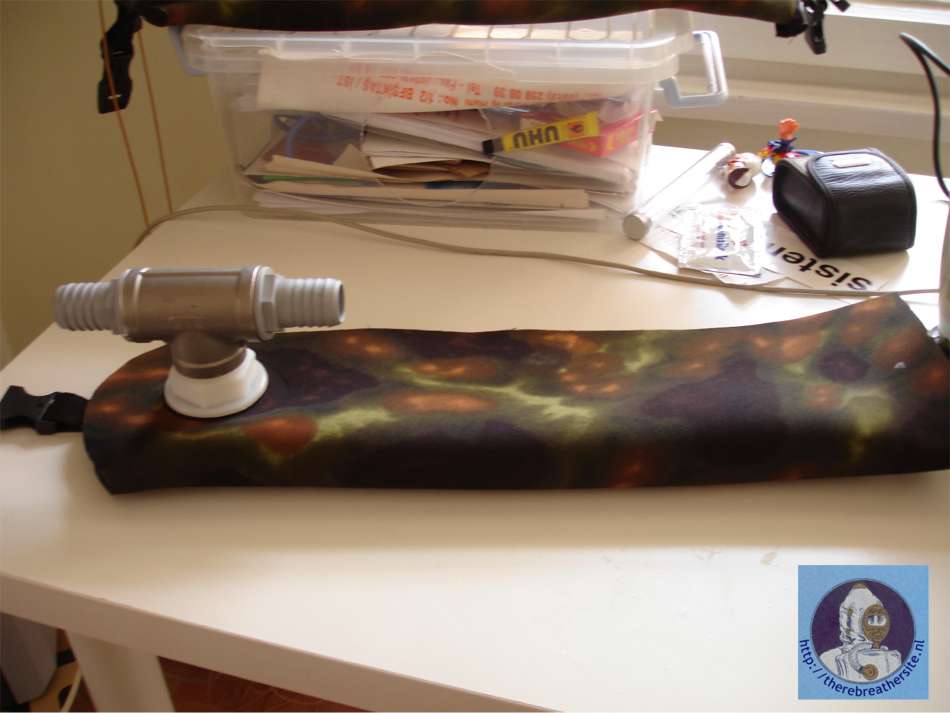 |
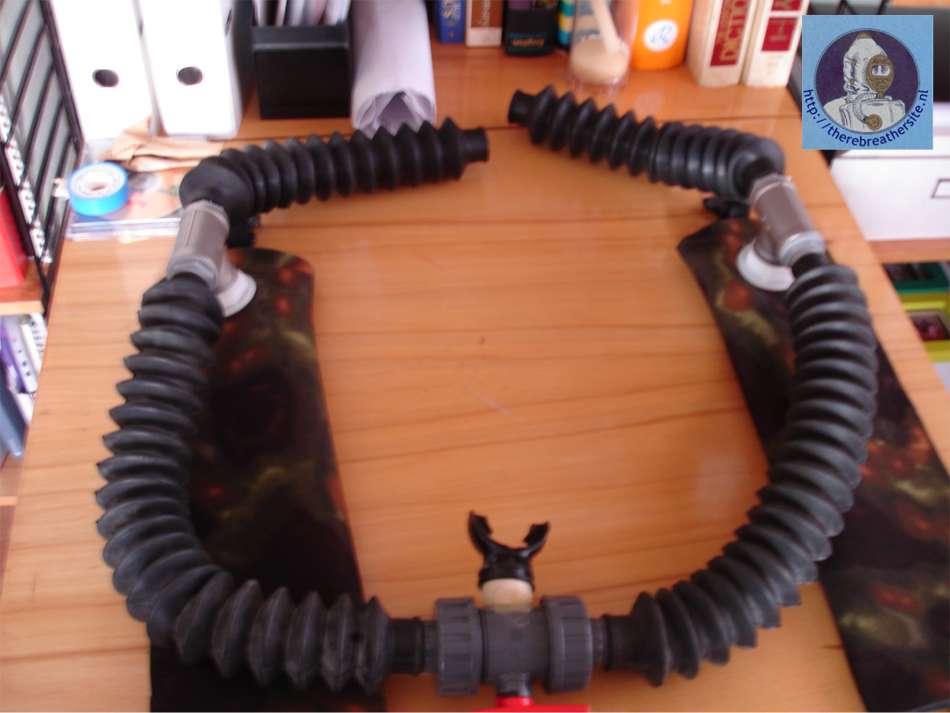 |
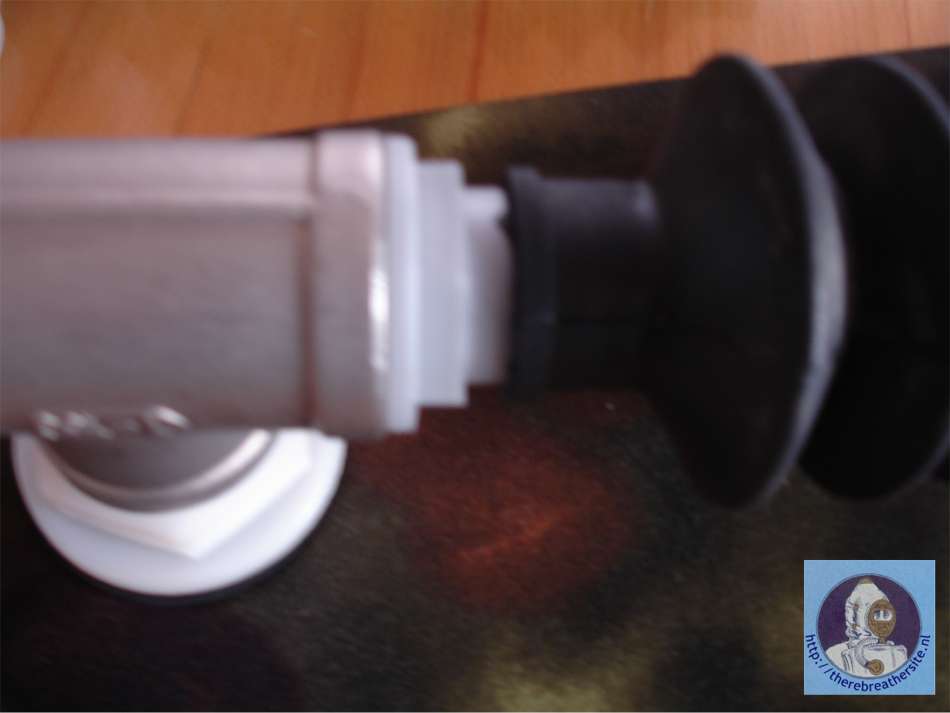 |
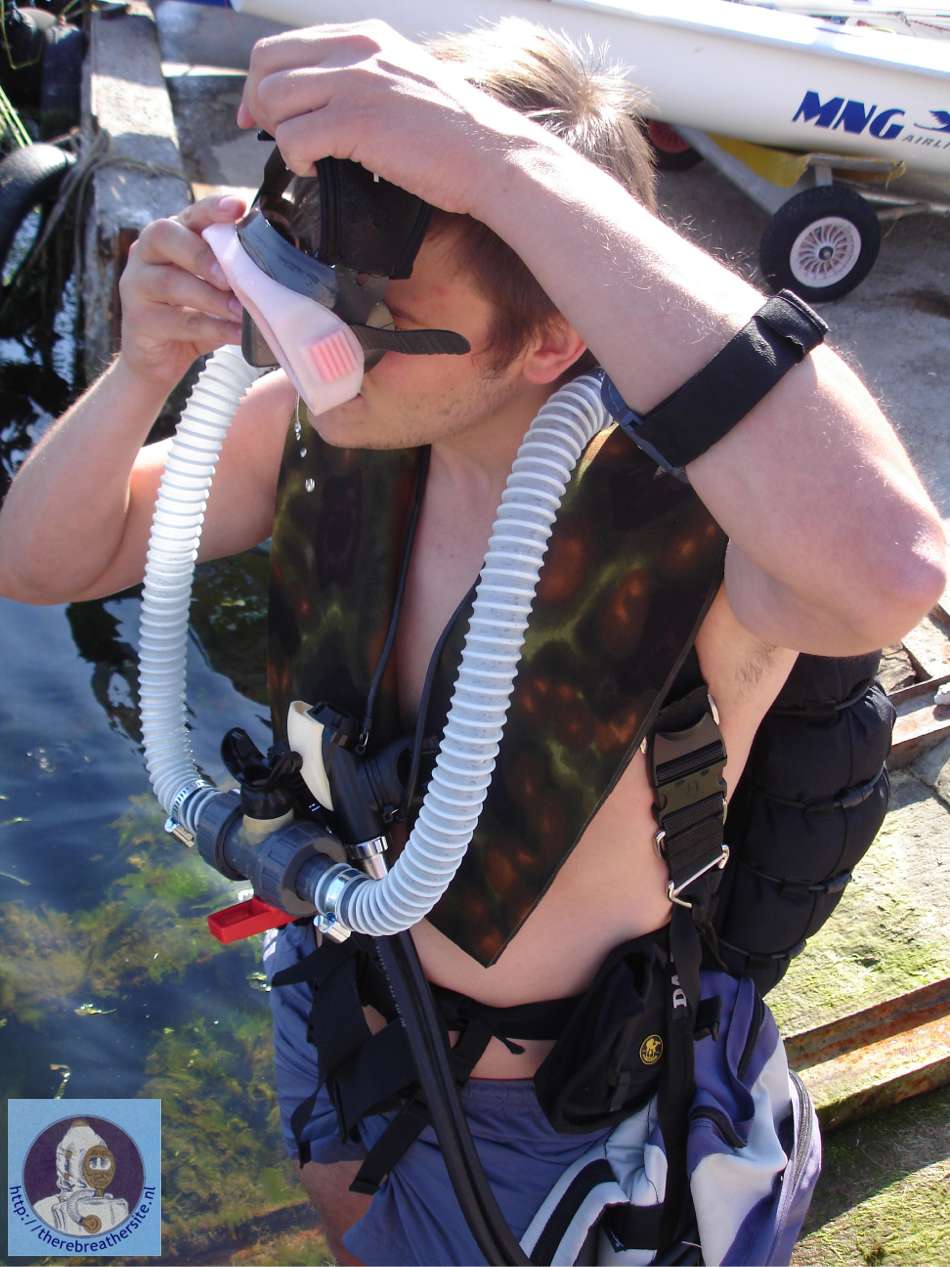 |
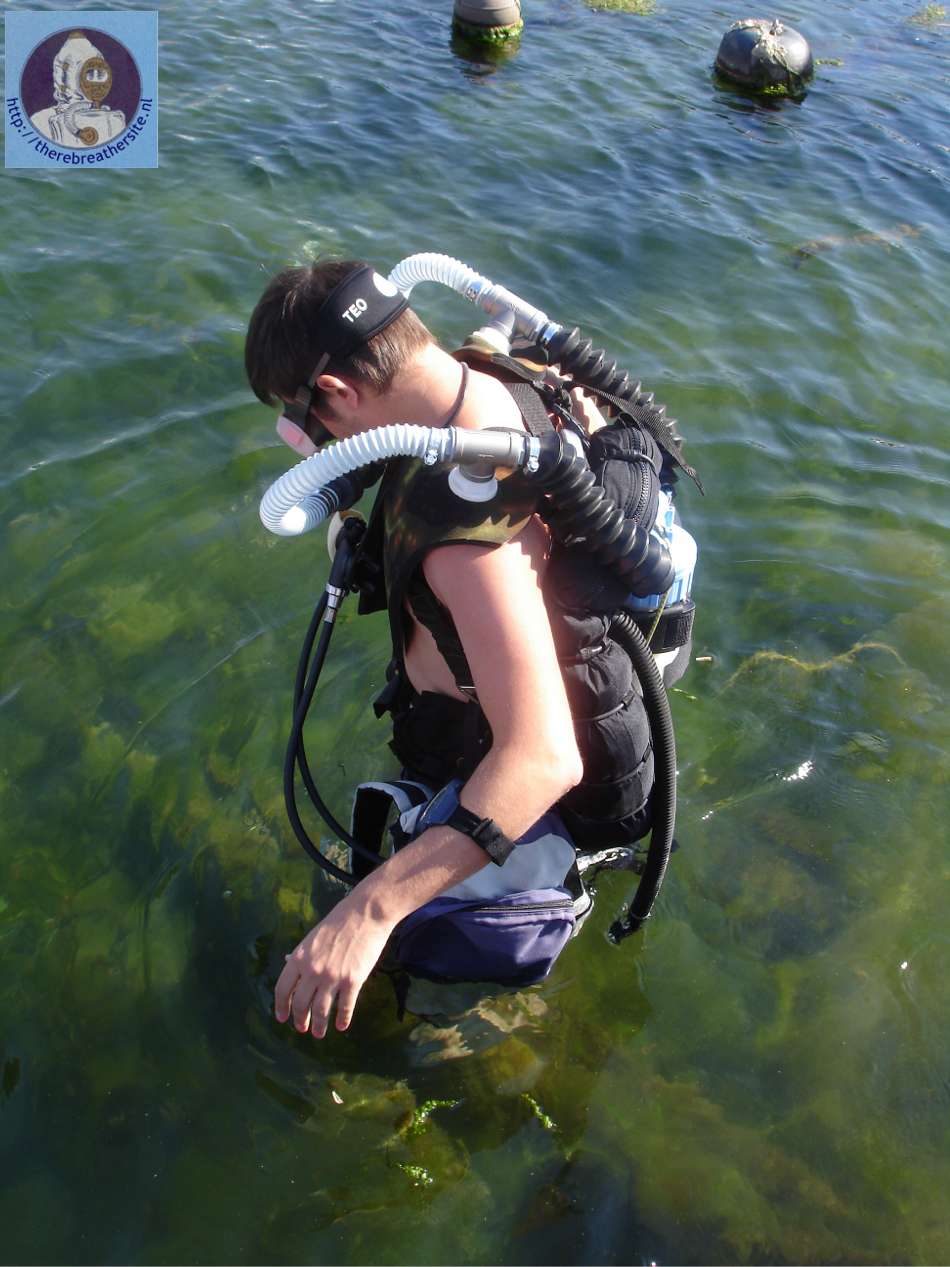 |
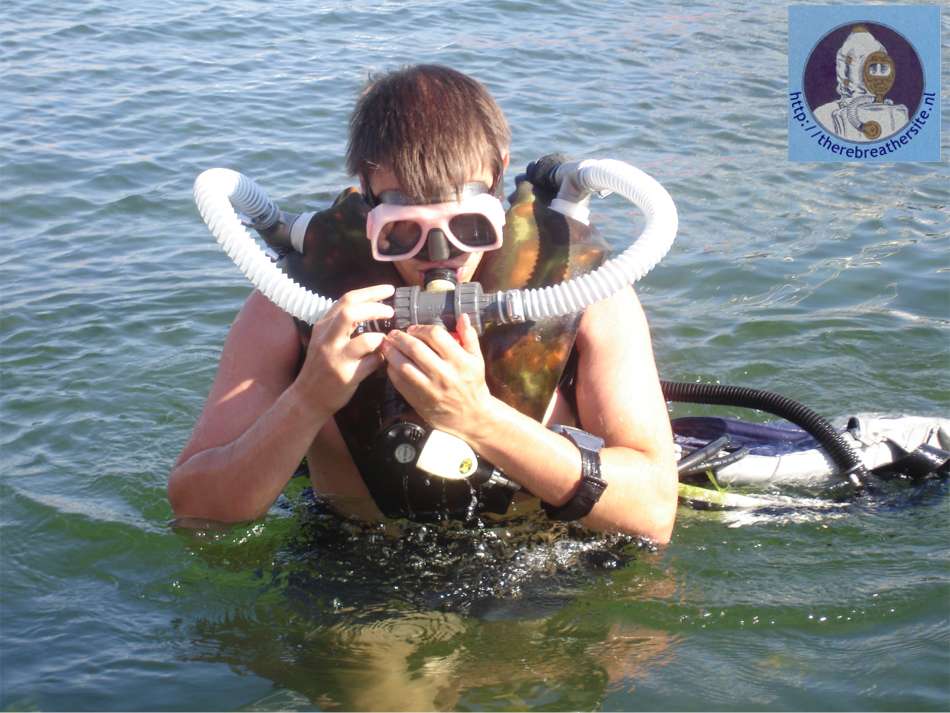 |
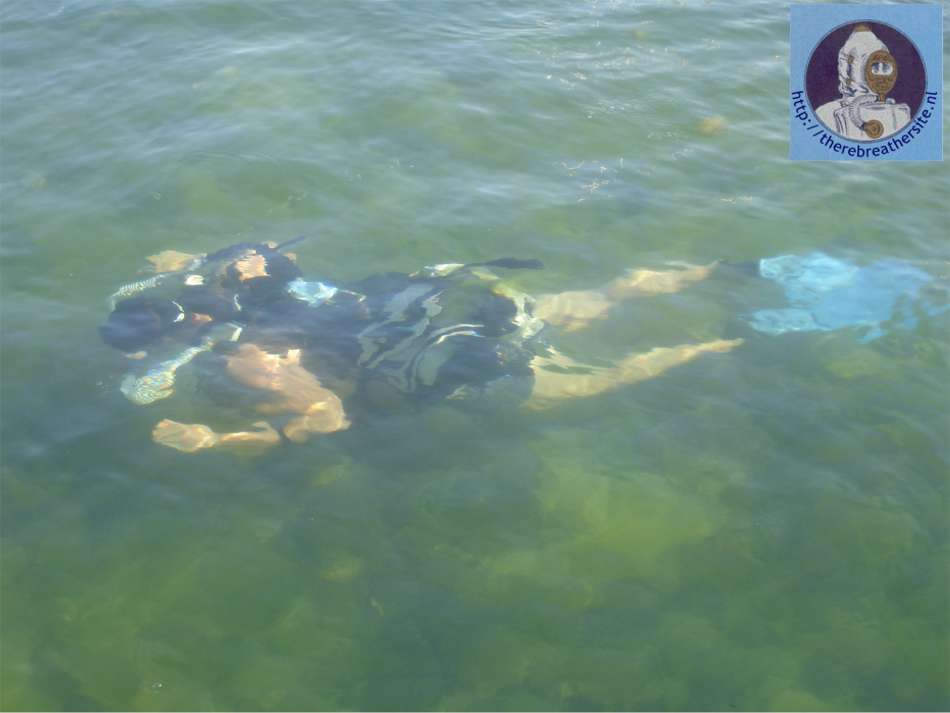 |
| Thank you Teoman for contributing to my website! |
| 06-12-2010 |